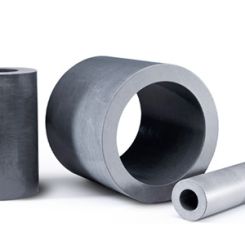
This year, WEFTEC took place online in the form of WEFTEC Connect to provide an opportunity for industry professionals to present their work and network amidst COVID-19 restrictions. Addressing some of the most pressing concerns of this time, several sessions looked at how the pandemic affected the water/wastewater industry and what some are doing to monitor wastewater for indicators of SARS-CoV-2. Learn more about those issues here.
Anna Maria Chávez delivered an important keynote address, "Meet Me in the Middle: Making Workforce Connections," making an impressive call to improve diversity in the water and wastewater workforce. She also noted the disparities that exist in some U.S. communities, including these major challenges:
- 10,000 people per day are turning 65 years old in the U.S. This is leading to high staff vacancies, and employers are struggling to employee skilled workers.
- Water utilities in disadvantaged communities are made up of diverse residents, but the workforces that serve them do not often reflect those communities.
- More than 2 million Americans lack access to clean water or a working toilet in the home.
During his keynote address, Andrew Wheeler, administrator of the United States Environmental Protection Agency (EPA), spoke about the significance of training the next generation of water/wastewater workers. Acknowledging that one-third of the water and wastewater workforce is expected to retire in the next decade, Wheeler outlined the recently announced Water Workforce Initiative created to help cities and communities across the country that are facing critical staffing shortages for the operation and maintenance of essential drinking water and wastewater infrastructure. The federal activities for the initiative will center around recruiting, training for the skills of tomorrow, collaborating to build a workforce that meets the needs of the future, and engagement in public outreach. Learn more about this initiative.
Other featured topics included advancements in technology such as the use of membrane aerated biofilm reactor (MABR) technology and new methods to predict, enhance and condition biogas for proper use. Another technical session discussed the concern about microplastics and whether the regulations emerging around them are needed yet, or if more research needs to be done. For more, on that click here.
Check out more of our WEFTEC Connect coverage and related how-to articles here.

